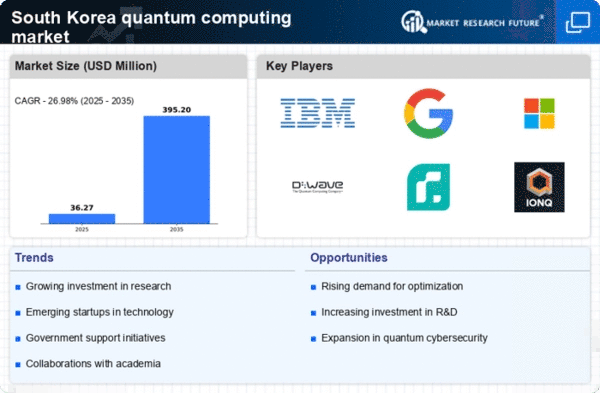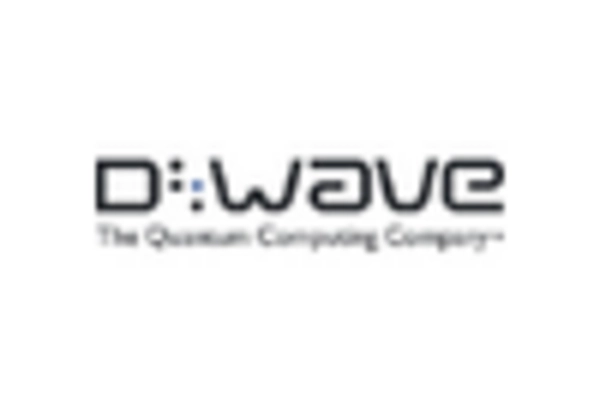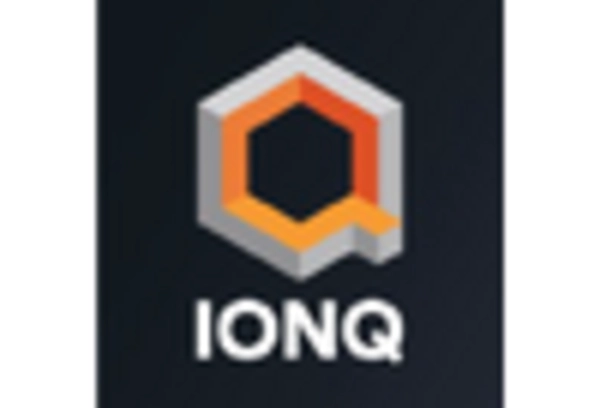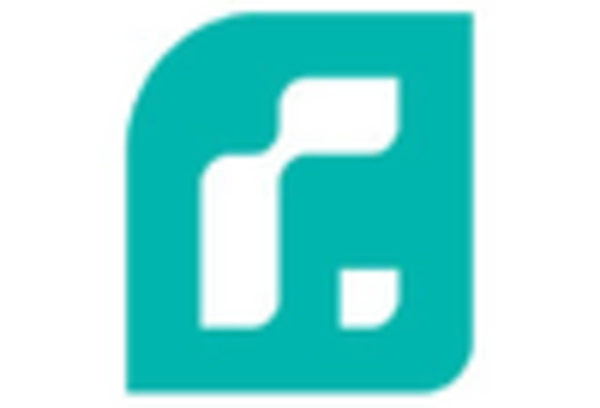Strategic Partnerships and Collaborations
Strategic partnerships among technology firms, research institutions, and government bodies are emerging as a crucial driver for the quantum computing market. In South Korea, collaborations between major tech companies and universities are fostering an environment conducive to innovation. These partnerships often focus on joint research initiatives, knowledge sharing, and resource pooling, which can accelerate the development of quantum technologies. For example, a recent collaboration between a leading tech firm and a prominent university aims to develop quantum algorithms tailored for specific industrial applications. Such initiatives not only enhance the capabilities of the quantum computing market but also create a robust ecosystem that supports sustained growth and innovation.
Regulatory Framework and Supportive Policies
The establishment of a regulatory framework and supportive policies is becoming increasingly important for the quantum computing market. In South Korea, the government is actively formulating policies that encourage research and development in quantum technologies. These policies may include tax incentives for companies investing in quantum computing and funding for research initiatives. Such regulatory support is likely to create a favorable environment for innovation, attracting both domestic and international investments. As the market matures, a clear regulatory framework could facilitate the commercialization of quantum technologies, ensuring that South Korea remains competitive in the global quantum computing landscape.
Technological Advancements in Quantum Hardware
The rapid evolution of quantum hardware technologies is a pivotal driver for the quantum computing market. In South Korea, advancements in superconducting qubits and ion trap technologies are gaining traction, potentially enhancing computational capabilities. The government has invested approximately $300 million in research and development initiatives aimed at fostering innovation in quantum hardware. This investment is likely to stimulate the growth of the quantum computing market, as improved hardware can lead to more efficient and powerful quantum systems. Furthermore, collaborations between academic institutions and private enterprises are expected to yield breakthroughs that could redefine computational limits. As these technologies mature, they may attract further investments, thereby accelerating the market's expansion.
Increased Demand for Quantum Solutions in Industries
Various industries in South Korea are increasingly recognizing the potential of quantum computing solutions to address complex problems. Sectors such as finance, pharmaceuticals, and logistics are exploring quantum algorithms to optimize operations and enhance decision-making processes. For instance, the financial sector is projected to invest around $150 million in quantum computing applications over the next five years, indicating a growing appetite for innovative solutions. This demand is likely to drive the quantum computing market, as companies seek to leverage quantum technologies for competitive advantage. The ability to solve intricate problems at unprecedented speeds may lead to significant cost savings and efficiency improvements, further propelling market growth.
Growing Awareness and Education in Quantum Technologies
The increasing awareness and education surrounding quantum technologies are vital for the quantum computing market's growth. In South Korea, educational institutions are incorporating quantum computing into their curricula, thereby cultivating a skilled workforce equipped to tackle future challenges. This educational push is likely to result in a more informed public and a greater number of professionals entering the field. As awareness grows, so does interest from various sectors, which may lead to increased investments in quantum research and development. The establishment of dedicated quantum research centers is also indicative of this trend, as they aim to bridge the gap between academia and industry, ultimately benefiting the quantum computing market.

















